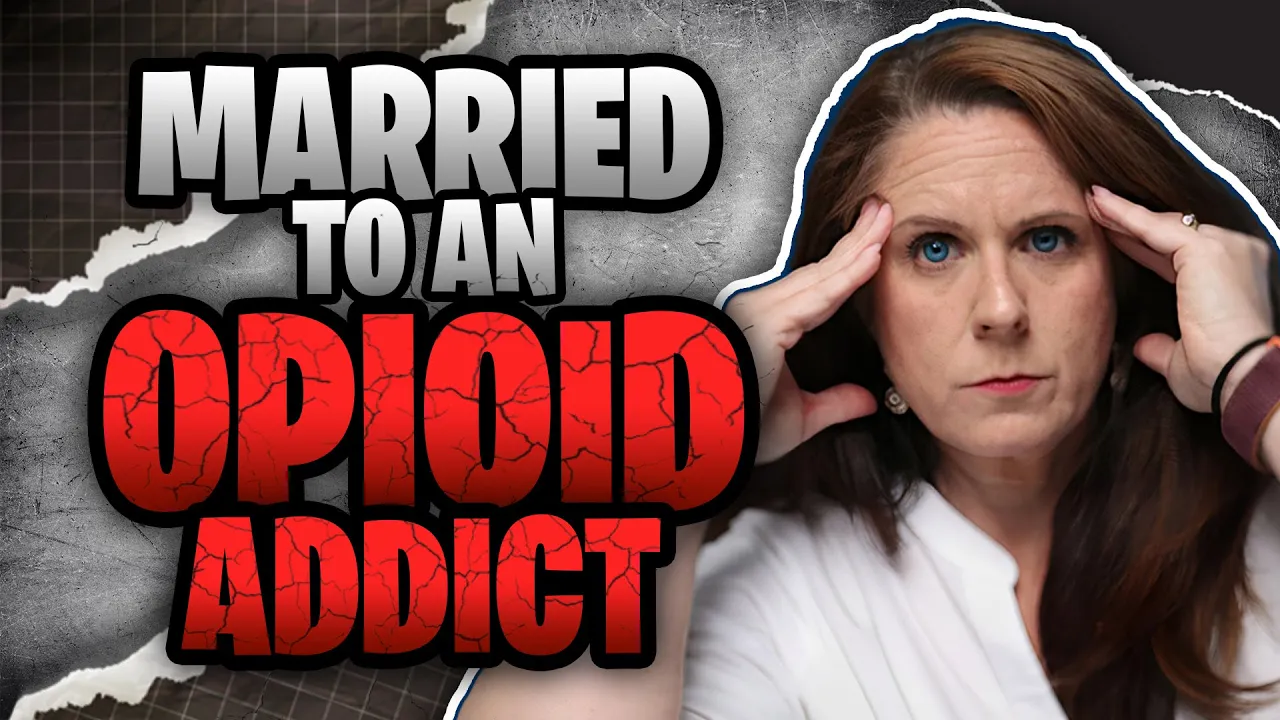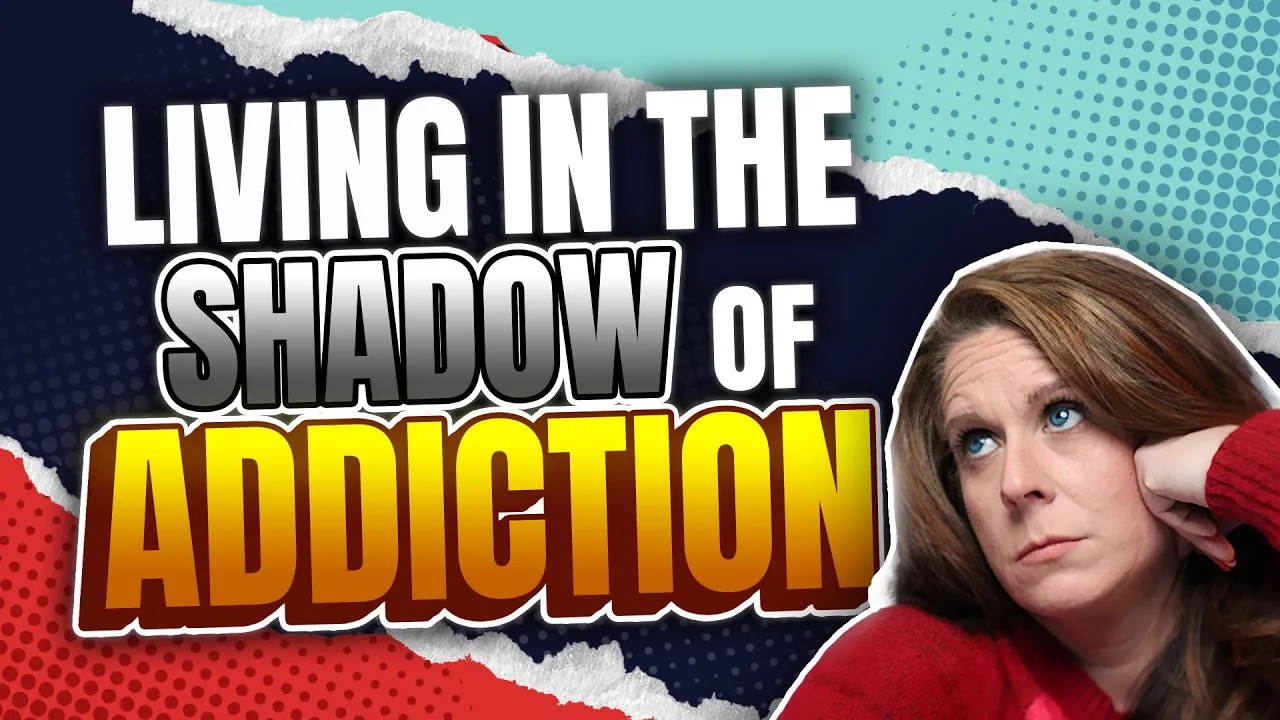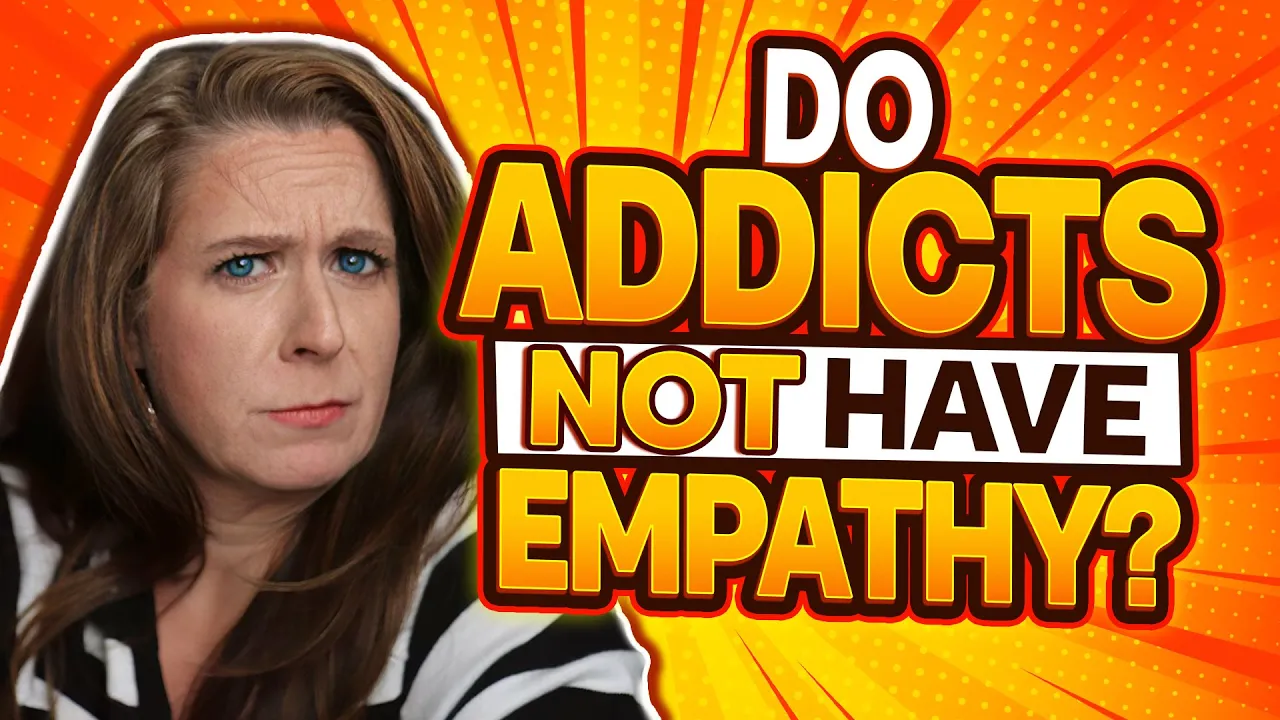A Story of Hope & Heartbreak | An Opioid Addiction Special
What Happens When the Person You Love Most Loses Themselves to Opiate Addiction?
Losing someone to opiate addiction is a heart-wrenching experience—especially when that person is your partner, your confidant, the one you vowed to stand by through thick and thin. In this post, we explore the unique challenges and emotional turmoil faced by those who love someone battling opioid addiction. Whether you're just starting to notice signs or have been grappling with this crisis for years, understanding the insidious nature of opiate addiction can be the first step toward reclaiming your life and protecting your family.
Understanding the Hidden Nature of Opiate Addiction
One of the most perplexing aspects of opioid addiction is its ability to hide in plain sight. Unlike other addictions, the early stages of opiate dependency can be deceptive:
-
Subtle Behavioral Changes:
Many people assume that if someone isn’t visibly intoxicated, there’s nothing to worry about. With opiate addictio...
What No One Tells You About Having an Addicted Sibling...
When Your Sibling is Addicted: A Different Kind of Heartbreak
Most discussions about addiction focus on the perspective of the person struggling or their immediate family—typically a parent or spouse. But today, we’re shifting the lens to an often-overlooked perspective: the sibling of an addicted person.
Having a brother or sister battling addiction is a completely different experience. Your response, emotions, and challenges are unique compared to those of a parent or spouse. Whether you grew up with an addicted sibling or their addiction emerged in adulthood, the impact on you is profound.
As a seasoned addiction counselor and someone who comes from a family with addiction, I understand this firsthand. I’ve avoided this topic for a long time because of its deeply personal nature, but today, we're diving in.
The Unique Challenges of Having an Addicted Sibling
Every sibling relationship is different, but addiction throws in additional layers of complexity. Your experience may b...
Do Addicts Mean The Hurtful Things They Say?
Do Addicts Mean the Hurtful Things They Say? Understanding Addiction and Empathy
Have you ever wondered, Do addicts mean the hurtful things they say? If so, you’re not alone. This is a question I recently received from a viewer, and I know many of you may be struggling with the same concern.
So, let’s break it down—do they mean it? The answer is yes, no, and sometimes. Confusing, right? Let’s dive deeper so you can understand when they mean it when they don’t and why addiction often seems to strip away empathy.
How Addiction Affects Thoughts, Emotions, and Behavior
People in active addiction are often operating from a place of intoxication, desperation, or defensiveness—and all three can impact what they say and how they act. Understanding these states can help you make sense of their words and behavior.
1. Intoxication: Truth, Distortion, and No Filter
Substances like alcohol and drugs alter brain function, making it hard for a person to regulate their emotions and thoughts.
...The Truth About Alcohol and Anxiety: Breaking the Cycle
The Truth About Alcohol and Anxiety: Breaking the Cycle
For many of us, a drink at the end of a hard day feels like the easiest way to unwind. Whether it’s a couple of cocktails after work, a glass of wine to pair with dinner, or a weekend toast with friends, alcohol often becomes the go-to solution for stress and anxiety relief. But here’s the thing—while it might feel like alcohol calms your nerves in the moment, it’s actually setting you up for more anxiety in the long run.
I know that’s not a popular message but stick with me. I’m going to explain the science behind why alcohol isn’t the anxiety cure it seems to be and how it can actually make things worse. Trust me, you’ll want to understand this if you’re serious about breaking free from the anxiety-alcohol cycle.
Why Alcohol Feels Like It Helps (At First)
When you take that first sip of alcohol, your brain gets a temporary “chill pill.” Alcohol is a central nervous system depressant, which means it slows things down in you...
When Is "Moderation" More Than Moderation? Signs You Might Be Crossing The Line
 Gray Area Thinking: Understanding Addiction on the Spectrum
Gray Area Thinking: Understanding Addiction on the Spectrum
Addiction isn’t a one-size-fits-all situation. It exists on a spectrum, with a gray area between casual use and full-blown addiction. This "gray area thinking" is where many people find themselves—not sure if their substance use is problematic, yet not identifying as an addict or alcoholic. If that resonates with you, you’re in the right place.
In today’s blog, we’ll explore gray area thinking, how it differs from gray area drinking, and what you can do if you’re navigating this confusing middle ground.
Signs of Gray Area Thinking
Gray area thinking often involves conflicting feelings about your substance use. You may:
- Vacillate between concern and dismissal – You promise yourself to cut back but later convince yourself it's not a big deal.
- Avoid discussing your substance use – Fear of judgment or pressure to change makes you reluctant to open up.
- Experience negative impacts – Your substance use may not dominate you...
This Is How Self-Pity & Victim Mindset Prevents You From Getting Sober
Breaking the Cycle: How Self-Pity Can Trigger Relapse and How to Stop It
You've probably heard the saying, "Pride comes before the fall." But when it comes to addiction recovery, I’d argue that *self-pity* comes before the fall. Of course, many factors can lead to relapse, but the biggest and final domino that usually topples is self-pity. This mindset can sneak in, quietly giving us permission to slip back into old habits.
Why Does Self-Pity Lead to Relapse?
It’s simple—stressful events or emotional triggers can't cause us to relapse by themselves. They can only push us toward relapse if we *let* them. And the most common way we give ourselves permission to use again is by falling into a victim mindset. This way of thinking allows us to justify and rationalize why we "deserve" to fall back into addiction.
So, in addiction recovery, it's crucial to learn how to recognize and combat this negative thinking. But why do we even fall into the trap of self-pity in the first place?
The...
Win Over Addiction With These Small But Powerful Habits
3 Simple Daily Rituals to Help You Maintain Sobriety: Tips from Amber Hollingsworth
Maintaining sobriety can feel like a daunting challenge, but doing a few simple daily rituals can make a significant difference in your recovery journey. In this blog post, we'll explore three effective habits that are easy to incorporate into your daily routine. Plus, we'll provide you with three free resources to support your journey and keep you on track.
1. Plan for Your Sobriety
When you commit to sobriety, it’s essential to plan how you’ll maintain it. Just like your addiction requires careful planning, so does your recovery. In the early stages, sobriety demands more effort and planning. Here’s how you can set yourself up for success:
- Create Accountability Set up systems to help you stay accountable. This could involve leaving cash and credit cards at home or choosing specific routes to avoid triggers.
- Prepare for Challenges: Plan activities that keep you engaged and away from temptation...
Are You Addicted? Find Out With The Criteria Used By Professionals
Are You Addicted? Discover the Criteria Used by Professionals to Find Out
Marijuana addiction is a sneaky, often overlooked issue that can be hard to identify. In fact, of all the addictions I treat, it's probably the hardest for people to recognize. In this post, we'll delve into the clinical criteria for marijuana addiction, officially known as Marijuana Use Disorder, and explore how these criteria can stay hidden under the radar.
Understanding Marijuana Use Disorder
Before we jump into the criteria, it's essential to understand that the clinical criteria for Marijuana Use Disorder are the same as those used for other substance addictions, like alcohol or methamphetamine. The only difference is the substance involved. By understanding these criteria, you can learn to recognize potential signs of addiction in yourself or someone you care about.
The 11 Criteria for Marijuana Use Disorder
Let's break down the 11 criteria used by professionals to diagnose Marijuana Use Disorder. A...
Amber Reacts: Chalene Johnson Opens Up About Getting Sober
Why More People Are Choosing to Ditch Alcohol (And Why You Might Want to Consider It, Too)
Have you noticed a growing trend lately? More and more people are choosing to stop drinking alcohol—not because they think they’re alcoholics, but because they’re rethinking the impact alcohol has on their lives. One notable example is fitness influencer Chalene Johnson, who recently shared her decision to quit drinking.
This isn’t just about giving up alcohol; it’s about being honest with ourselves about how it affects our health, relationships, confidence, and even our careers.
Why Quit Drinking When You're Not an Alcoholic?
For a long time, society has told us that unless we have a problem with alcohol, there’s no reason to stop drinking. Some of us even hold onto the idea that a little alcohol is healthy. But research tells a different story—one that’s worth paying attention to.
Alcohol is a toxin. No matter what type you choose, it’s still harming your body. Even the idea that a glass...
The Real Reason You're Struggling Getting Sober

The Real Reason You Can’t Stay Sober—And How to Overcome It
Staying sober is a battle that varies depending on what stage of recovery you’re in. If you’ve ever wondered why it seems impossible to stay sober even when you genuinely want to, the answer lies in the specific phase of sobriety you’re currently navigating. Over my 20+ years of helping people get and stay sober, I’ve identified three distinct phases of recovery, each with its own unique set of challenges and hidden obstacles.
In this post, I’ll break down these phases for you, revealing the common pitfalls at each stage and offering practical advice to help you stay on track. If you’re serious about overcoming addiction, whether for yourself or a loved one, this information is invaluable.
Phase 1: The First Few Days—Overcoming Withdrawal
If you’re struggling to stay sober for more than two to three days, the issue might be related to withdrawal. In the first 48 to 72 hours, withdrawal symptoms can hit their peak, making...








